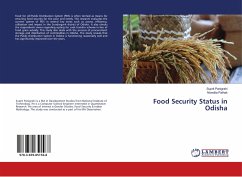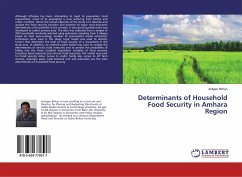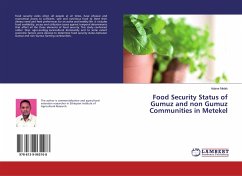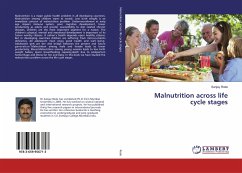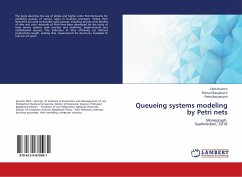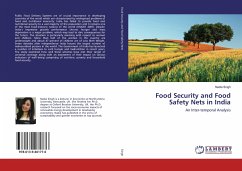
Food Security and Food Safety Nets in India
An Inter-temporal Analysis
Versandkostenfrei!
Versandfertig in 6-10 Tagen
41,99 €
inkl. MwSt.

PAYBACK Punkte
21 °P sammeln!
Public Food Delivery Systems are of crucial importance in developing countries of the world which are characterized by widespread problems of food and nutritional insecurity. India has failed to provide food and nutritional security to a vast majority of the population and it remains one of the most food-insecure nations of the world (UNICEF, 2007). Despite India's impressive growth performance chronic hunger and mass deprivation is a major problem, which may lead to dire consequences for the future. The situation is particularly alarming with respect to women and children. More than half of t...
Public Food Delivery Systems are of crucial importance in developing countries of the world which are characterized by widespread problems of food and nutritional insecurity. India has failed to provide food and nutritional security to a vast majority of the population and it remains one of the most food-insecure nations of the world (UNICEF, 2007). Despite India's impressive growth performance chronic hunger and mass deprivation is a major problem, which may lead to dire consequences for the future. The situation is particularly alarming with respect to women and children. More than half of the women in the country are underweight and about 47 percent of children are of Low Birth Weight. Seven decades after independence India houses the largest number of malnourished persons in the world. The Government of India has launched a number of initiatives to curb hunger and malnutrition in recent years. The study examined how well these schemes have met their target of universal coverage along with an assessment of their impact on various indicators of well being comprising of nutrition, poverty and household food security.



